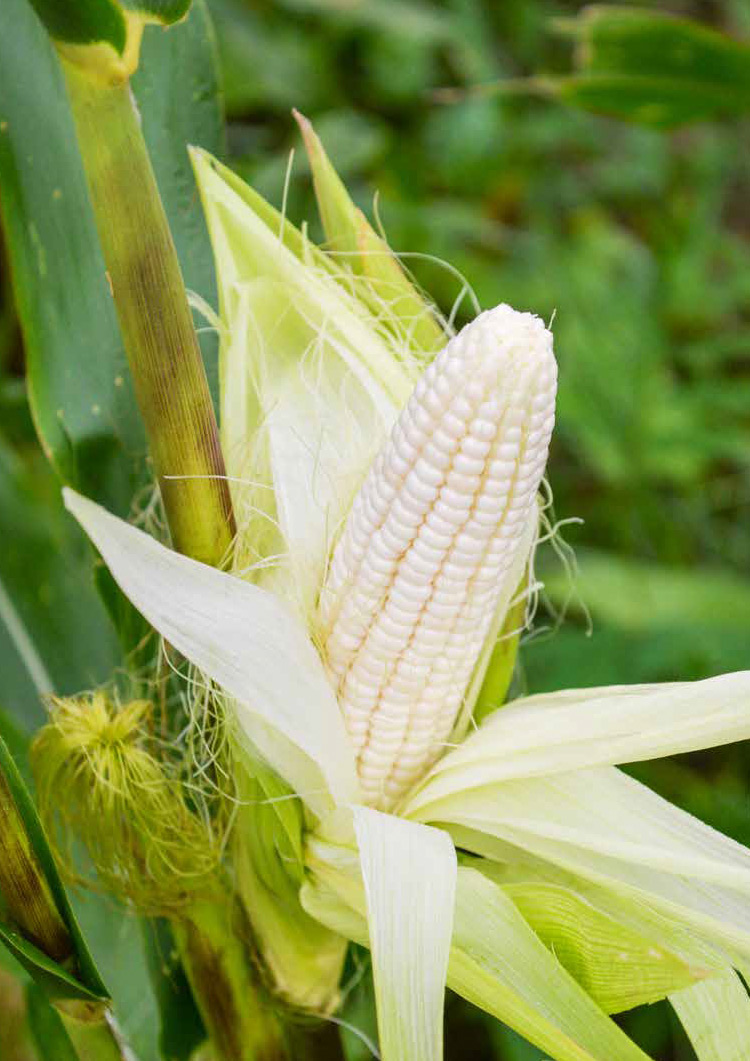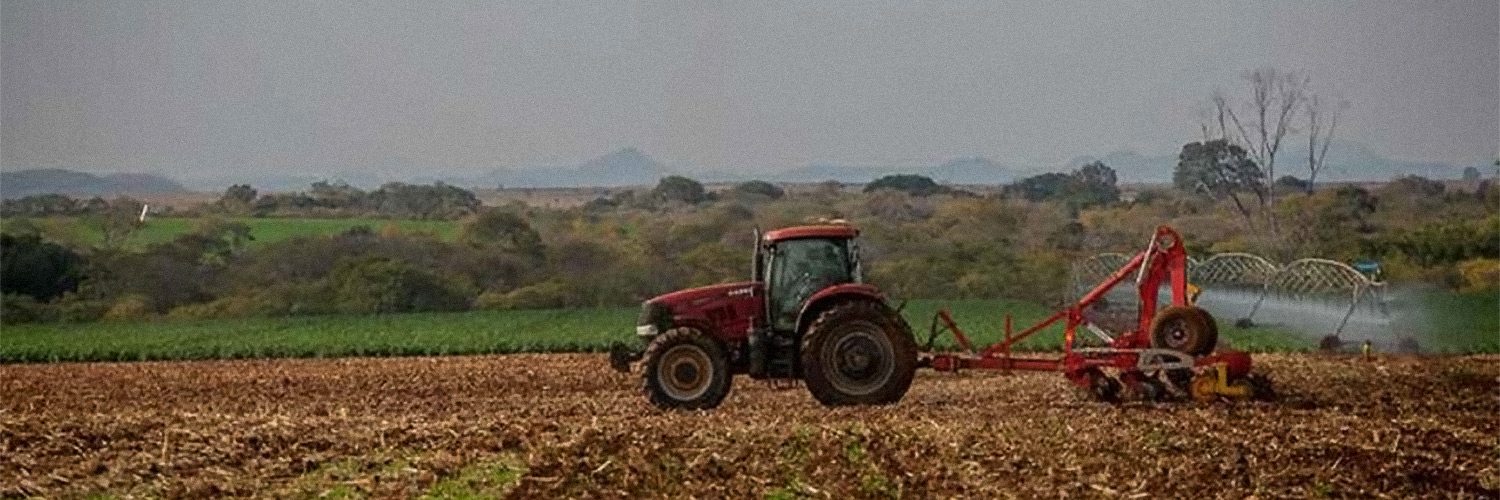
Strategic Approach
Continued strategic investment into and empowerment of Zimbabwe’s agricultural sector is a critical success factor to ensure the future sustainable growth of our milling, baking and protein businesses which are reliant on the local agriculture sector.
Key Highlights
- Supporting agriculture through contract farming initiatives through the Agrowth Scheme
- Empowering and tooling small-scale farmers
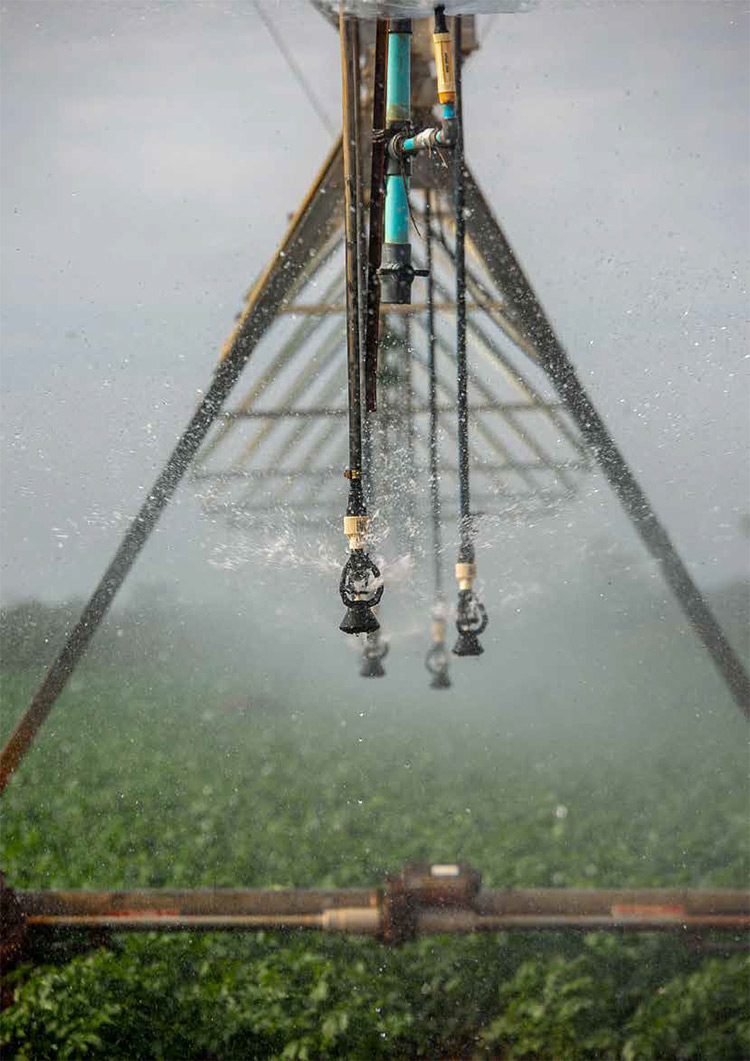
Innscor Africa’s investment into Zimbabwean agriculture is through PHI whose aim is to secure the Groups’ raw material requirements while contributing to National Food Security.
The Group, which includes National Foods Flour Division, Maize Milling Division, Stock Feeds Division and Fast- Moving Consumer Goods Division, Profeeds, Probrands, Irvine’s, The Buffalo Brewing Company and Colcom is the largest buyer of local maize, soya products and wheat in Zimbabwe and uses a substantial volume of locally produced sorghum, sugar beans and popcorn.
In support of Government’s stated aim of encouraging local processors to support the production of their raw material requirements, PHI is driving a three-part strategy to secure locally produced commodity:
- PHI has invested in a corporate farming model, which focused on the production of 3 000 metric tonnes of soya beans in the 2022/2023 summer season, over 40 000 metric tonnes of table potatoes and is expected to produce 7 000 metric tonnes of wheat in the winter of 2023.
- PHI manages the Agrowth Contract Farming scheme which financed farmers to grow over 60 000 metric tonnes of wheat in 2022 and is hoping for a similar crop in 2023, 12 000 hectares of maize, soya beans and sorghum in the 2022/2023 summer season and is targeting a similar hectarage of these crops in the 2023/2024 season.
- With the increased liberalisation of the marketing of key commodities, PHI purchases maize, soya beans and wheat from other registered contractors on behalf of the Group companies.
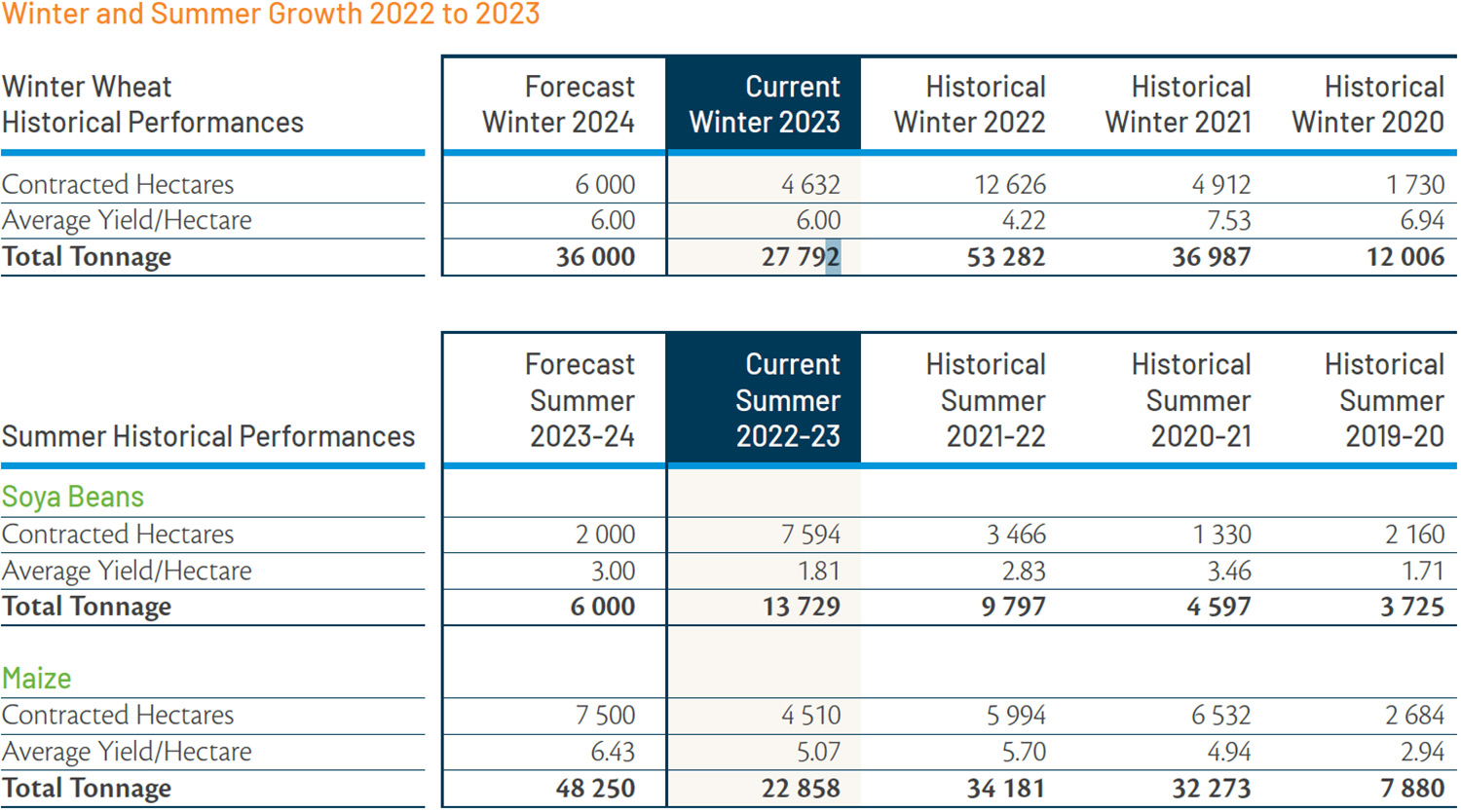
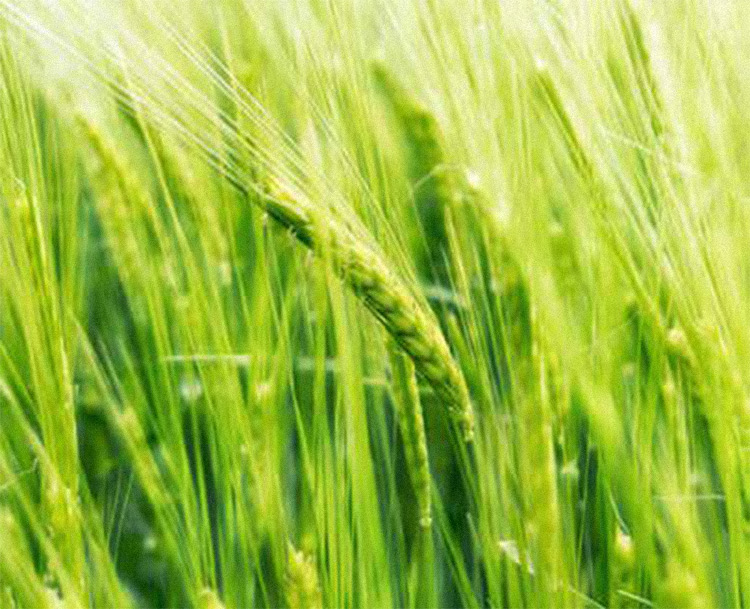
The number of farmers differs between seasons and between crops. PHI had 93 commercial wheat farmers in 2022 and 54 wheat farmers in 2023. The summer programme is approximately the same number of commercial farmers and around 250 small-scale farmers growing maize and sorghum. Many of the commercial farmers are new farmers.
Contribution to the National Cropping Requirement
PHI/Agrowth have consistently been the largest private sector contractor under the Food Contractors Association (FCCA). The contribution of the FCCA to the national crop requirements is acknowledged by Government and FCCA will produce around 50% of the national wheat crop for 2023.
PHI has also invested in a Livestock Division that manages a fully integrated beef operation that slaughters on average 2 500 head per month of cattle that are purchased from local producers and produced and fattened internally. The Division operates two wholesale outlets as well as supplying product directly into AMP.
Human Capital
IL Integrated (IL), a subsidiary of PHI, has a valued and dedicated workforce. IL is very much a seasonal business in terms of workload and labour requirements, particularly with regards to potato harvesting and seed maize detasseling operations.
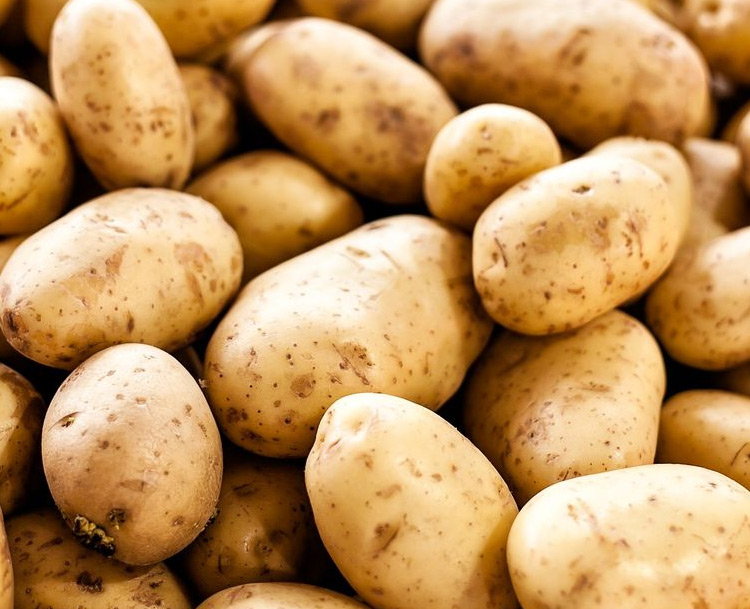
With the continuing liberalisation of the marketing of agricultural commodities and the improving stability in the economy PHI believes that it is well positioned to continue to grow its involvement and investment, on behalf of the Group, in Zimbabwean agriculture.
The respective farms have the following labour requirements at peak and off-peak times.
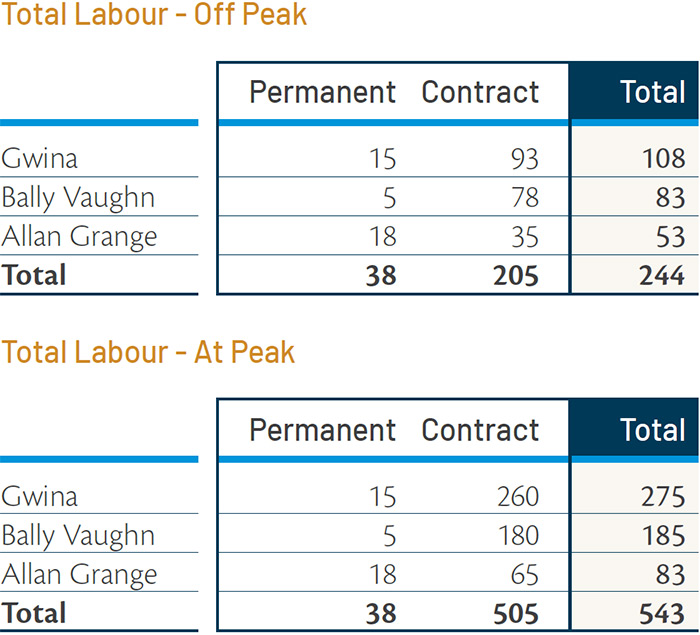
During our peak periods, IL draws labour from the surrounding areas and offer fixed-term contract job opportunities. The labour employed on contract are supplied with a weekly food ration mainly consisting of maize and potatoes. IL Integrated also supplies transport to and from work for the contract labourers.
The farms have Health Workers employed by IL who assist with any on-farm issues. IL also has a good relationship with the local clinics and provides transport and funds for all health-related issues a Health Worker is not able to deal with adequately. IL also provides training for our Health Workers.
The farms provide accommodation for the employees who live on the farm; IL provides electricity and water for the employees. The employees who do not live on the farms receive a financial provision for power, water and fuel in accordance with the National Employment Council (NEC) Statutory Instrument.
At IL we understand our team of employees is our most valued asset and the Company is always striving to look after them as best as we can.
Corporate Social Responsibility Initiatives (CSR)
Schools
Each farm employs childminders who look after infants while their parents are at work for the day. The number of infants the childminders look after ranges but is generally between 10-30 at any one time.
The local schools in the area that our staff children attend are as follows:
- Gwina Farm: Kuwadzana Primary and Secondary School (Banket) - IL has 110 employees’ children attending from Gwina Farm.
- Bally Vaughn Farm: Chabwino Primary and Secondary School (Enterprise) - IL has 75 employees’ children attending from Bally Vaughn Farm.
- Allan Grange Farm: Gombera Primary School and Yomba Primary and Secondary School (Raffingora) - IL has 67 employees’ children attending from Allan Grange Farm.
IL also assists the schools with mowing their sports facilities, as well as donating food and diesel for events they hold and help maintain the facilities.
IL Integrated places high value on working with the communities within which its farms operate and through the initiatives listed above, IL spent an approximately USD 48 600 in the current reporting year and is further analysed below:
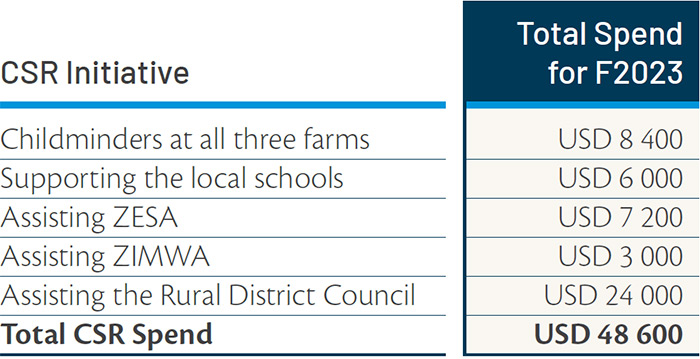
Local Stakeholders Engagement and Assistance
IL works closely with the farms’ local stakeholders, namely –
Zimbabwe Electricity Supply Authority (ZESA) – assisting with locating faults, providing the ZESA technicians with transport and diesel, and fire guarding the power supply infrastructure.
Zimbabwe National Water Authority (ZINWA) – assisting with the maintenance of the water sources, dam walls, transport for the ZINWA employees and providing diesel to the
ZINWA team. Rural District Councils – assisting with grading the Council roads with our own equipment as well as contributing diesel for the Council graders and equipment.

